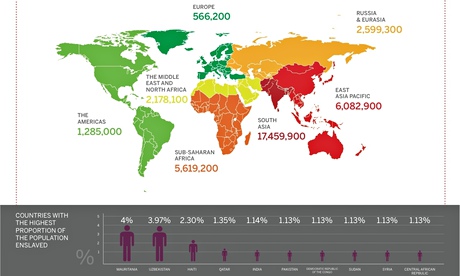The blind pursuit of economic exapansion stokes a cycle of financial crisis, and is wrecking our world. Time for an alternative

Another crash is coming. We all know it, now even David Cameron acknowledges it. The only questions are what the immediate catalyst will be, and when it begins.
You can take your pick. The Financial Times reported yesterday that China now resembles the US in 2007. Domestic bank loans have risen 40% since 2008, while “the ability to repay that debt has deteriorated dramatically”. Property prices are falling and the companies that run China’s shadow banking system provide “virtually no disclosure” of their liabilities. Just two days ago the G20 leaders announced that growth in China “is robust and is becoming more sustainable”. You can judge the value of their assurances for yourself.
Housing bubbles in several countries, including Britain, could pop any time. A report in September revealed that total world debt (public and private) is 212% of GDP. In 2008, when it helped cause the last crash, it stood at 174%. The Telegraph notes that this threatens to cause “renewed financial crisis … and eventual mass default”. Shadow banking has gone beserk, stocks appear to be wildly overvalued, the eurozone is bust again. Which will blow first?
Or perhaps it’s inaccurate to describe this as another crash. Perhaps it’s a continuation of the last one, the latest phase in a permanent cycle of crisis exacerbated by the measures (credit bubbles, deregulation, the curtailment of state spending) that were supposed to deliver uninterrupted growth. The system the world’s governments have sought to stabilise is inherently unstable; built on debt, fuelled by speculation, run by sharks.
If it goes down soon, as Cameron fears, in a world of empty coffers and hobbled public services it will precipitate an ideological crisis graver than the blow to Keynesianism in the 1970s. The problem that then arises – and which explains the longevity of the discredited ideology that caused the last crash – is that there is no alternative policy, accepted by mainstream political parties, with which to replace it. They will keep making the same mistakes, while expecting a different outcome.
To try to stabilise this system, governments behave like soldiers billeted in an ancient manor, burning the furniture, the paintings and the stairs to keep themselves warm for a night. They are breaking up the postwar settlement, our public health services and social safety nets, above all the living world, to produce ephemeral spurts of growth. Magnificent habitats, the benign and fragile climate in which we have prospered, species that have lived on earth for millions of years – all are being stacked on to the fire, their protection characterised as an impediment to growth.
Cameron boasted on Monday that he will revive the economy by “scrapping red tape”. This “red tape” consists in many cases of the safeguards defending both people and places from predatory corporations. The small business, enterprise and employment bill is now passing through the House of Commons – spinelessly supported, as ever, by Labour. The bill seeks to pull down our protective rules to “reduce costs for business”, even if that means increasing costs for everyone else, while threatening our health and happiness. But why? As the government boasted last week, the UK already has “the least restrictive product market regulation and the most supportive regulatory and institutional environment for business across the G20.” And it still doesn’t work. So let’s burn what remains.
This bonfire of regulation is accompanied by a reckless abandonment of democratic principles. In the Commons on Monday, Cameron spoke for the first time about the Transatlantic Trade and Investment Partnership (TTIP). If this treaty between the EU and the US goes ahead, it will grant corporations a separate legal system to which no one else has access, through which they can sue governments passing laws that might affect their profits. Cameron insisted that “it does not in any way have to affect our national health service”. (Note those words “have to”.) Pressed to explain this, he cited the former EU trade commissioner, who claimed that “public services are always exempted”.
But I have read the EU’s negotiating mandate, and it contains no such exemption, just plenty of waffle and ambiguity on this issue. When the Scottish government asked Cameron’s officials for an “unequivocal assurance” that the NHS would not be exposed to such litigation, they refused to provide it. This treaty could rip our public services to shreds for the sake of a short and (studies suggest) insignificant fizzle of economic growth.
Is it not time to think again? To stop sacrificing our working lives, our prospects, our surroundings to an insatiable God? To consider a different economic model, which does not demand endless pain while generating repeated crises?
Amazingly, this consideration begins on Thursday. For the first time in 170 years, parliament will debate one aspect of the problem: the creation of money. Few people know that 97% of our money supply is created not by the government (or the central bank), but by commercial banks in the form of loans. At no point was a democratic decision made to allow them to do this. So why do we let it happen? This, as Martin Wolf has explained in the Financial Times, “is the source of much of the instability of our economies”. The debate won’t stop the practice, but it represents the raising of a long-neglected question.
This, though, is just the beginning. Is it not also time for a government commission on post-growth economics? Drawing on the work of thinkers such as Herman Daly, Tim Jackson, Peter Victor, Kate Raworth, Rob Dietz and Dan O’Neill, it would look at the possibility of moving towards a steady state economy: one that seeks distribution rather than blind expansion; that does not demand infinite growth on a finite planet.
It would ask the question that never gets asked: why? Why are we wrecking the natural world and public services to generate growth, when that growth is not delivering contentment, security or even, for most of us, greater prosperity? Why have we enthroned growth, regardless of its utility, above all other outcomes? Why, despite failures so great and so frequent, have we not changed the model? When the next crash comes, these questions will be inescapable.




